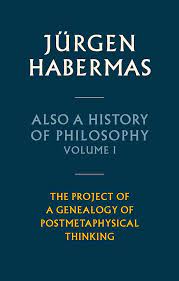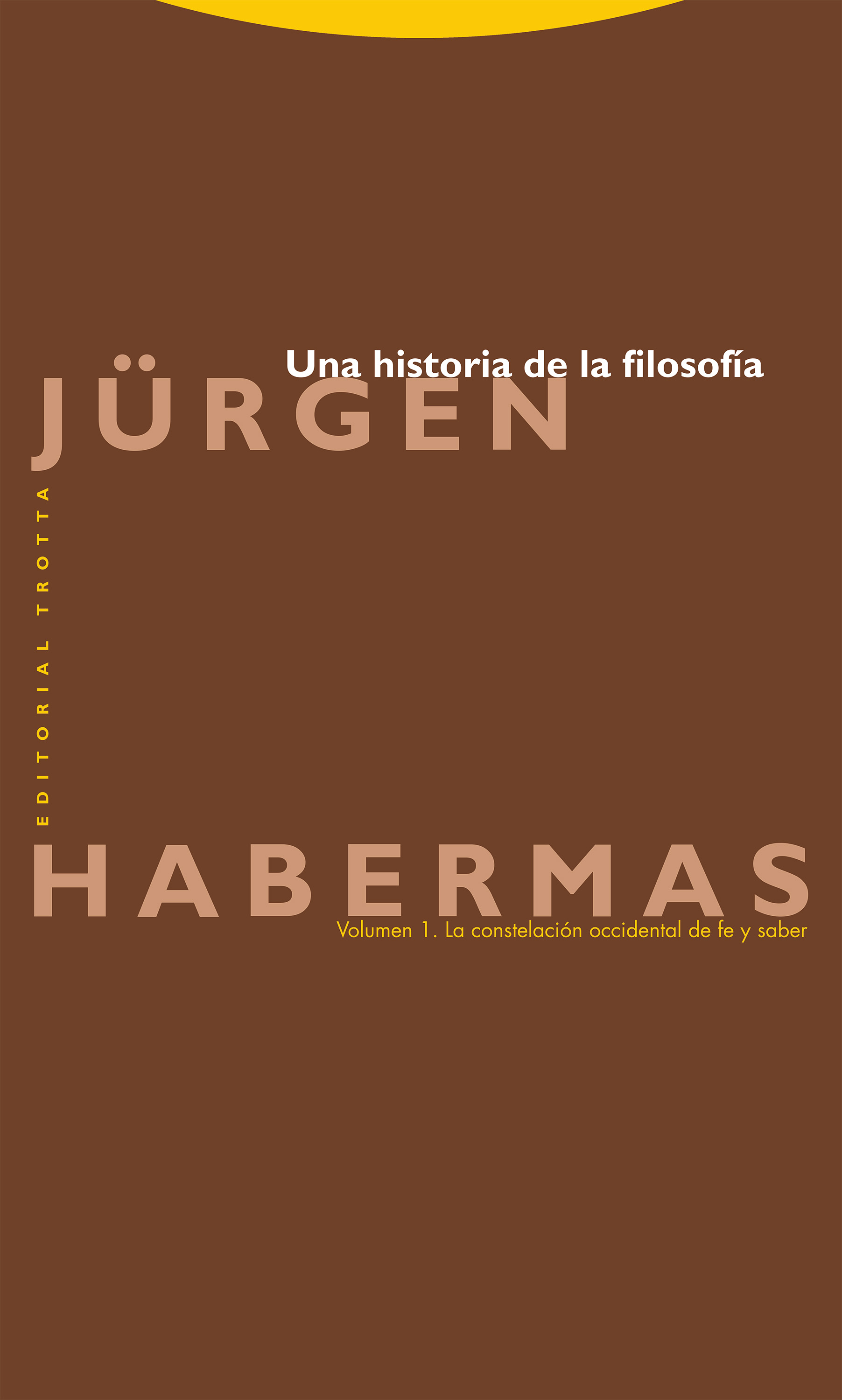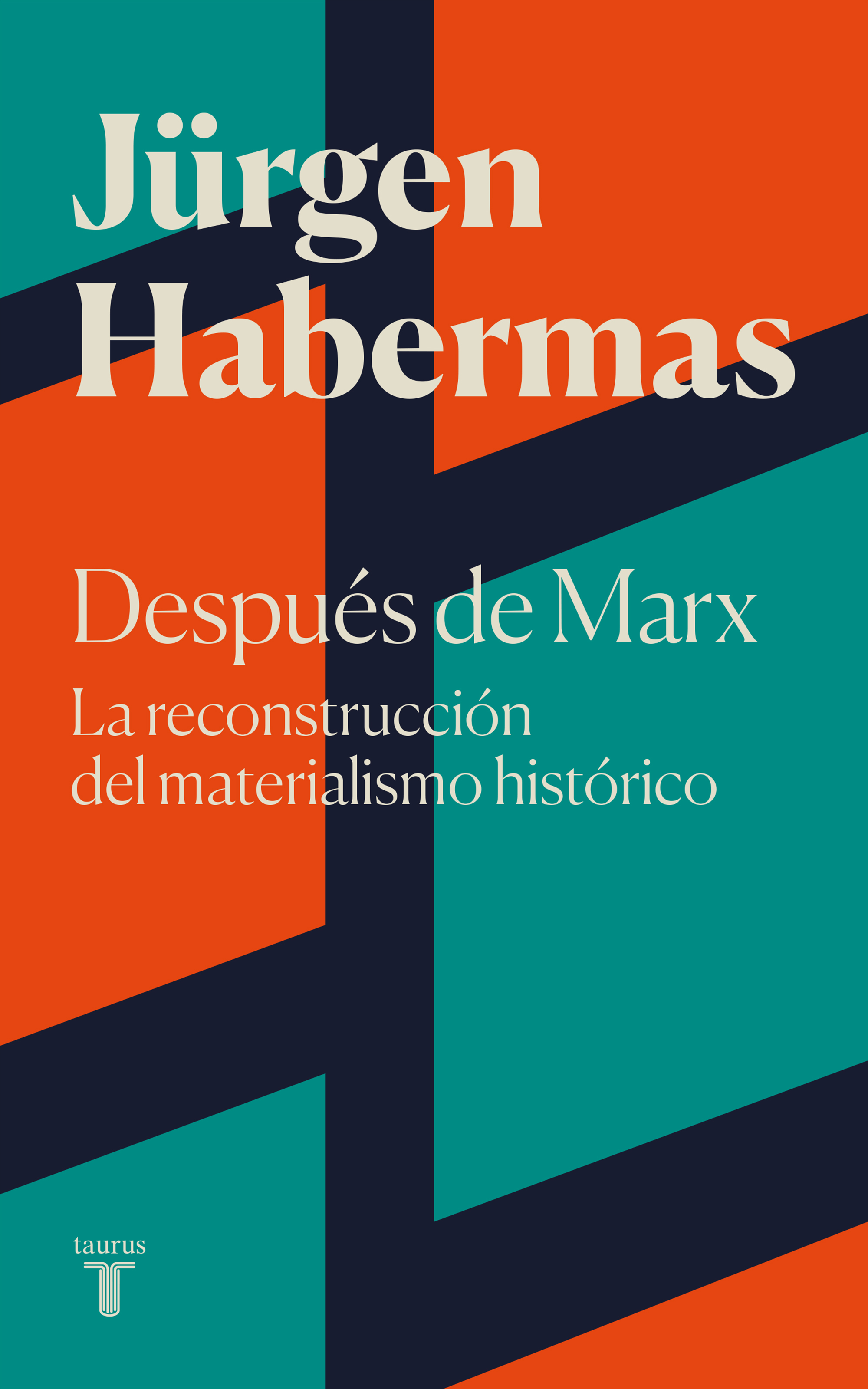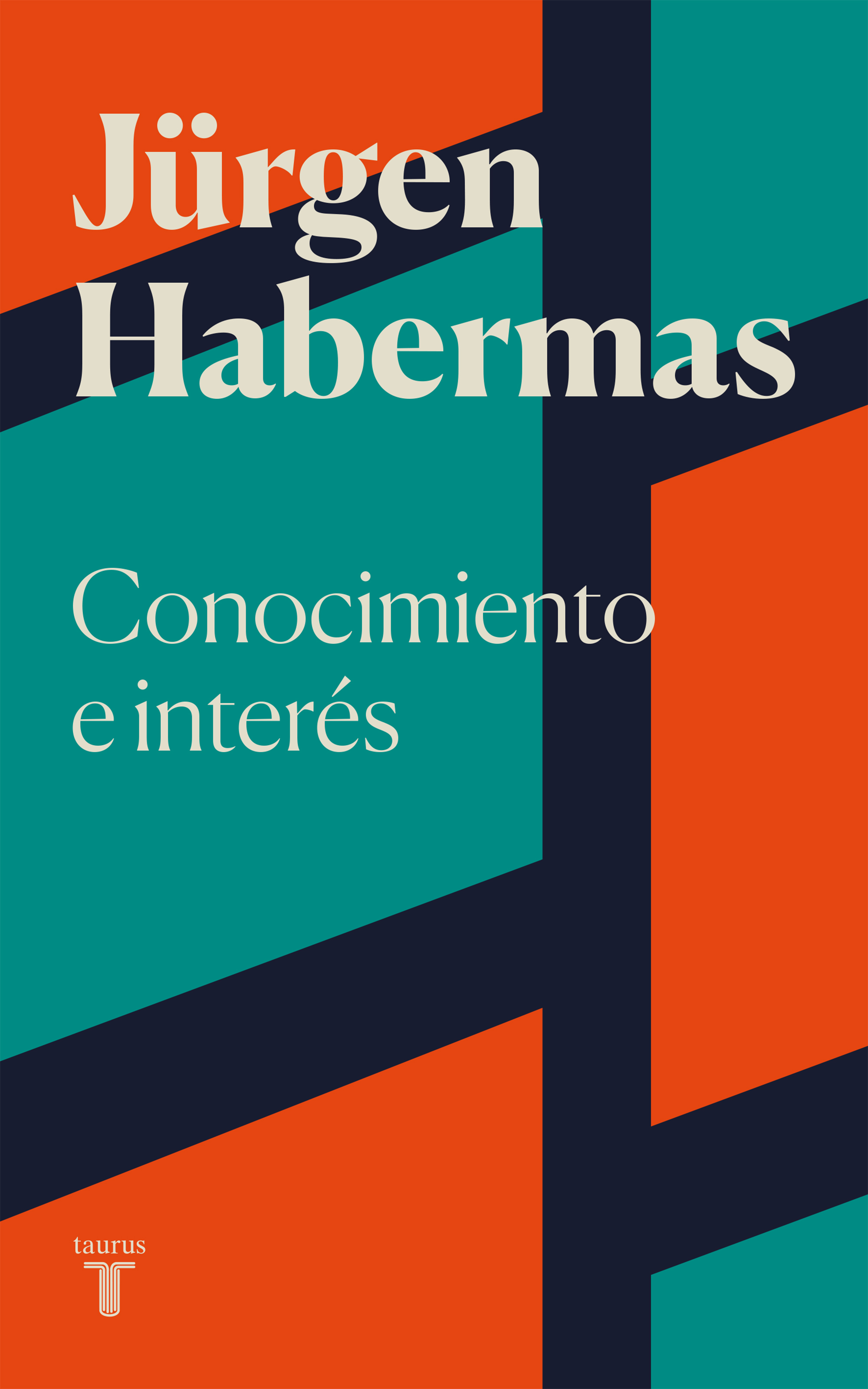Also a history of philosophy
Volume 1, The project of a genealogy of postmetaphysical thinking
- ISBN: 9781509543892
- Editorial: Polity Press
- Fecha de la edición: 2023
- Lugar de la edición: Cambridge. Reino Unido
- Encuadernación: Cartoné
- Medidas: 24 cm
- Nº Pág.: 448
- Idiomas: Inglés

This is the first volume of a ground-breaking new work by Jürgen Habermas on the history of philosophy.
In this major new work, Habermas sets out the ideas that inform his systematic account of the history of Western philosophy as a genealogy of postmetaphysical thinking. His account goes far beyond a vindication of the enduring relevance of philosophical reflection founded on communicative reason as a source of orientation in the modern world. He contrasts this conception with prominent diagnoses of the supposed crisis of Enlightenment reason and culture that seeks redemption in the affirmation of traditional religious authority (Schmitt), the timeless validity of Greek metaphysics (Strauss), a numinous conception of nature (Löwith), and an occurrence of being that speaks to us from beyond the mists of pre-Socratic thought (Heidegger).
Habermas situates Western philosophy in relation to traditions of thought founded in the major worldviews (Judaism, Buddhism, Confucianism and Taoism) that continue to shape contemporary culture and civilization. At the same time, he lays the groundwork for his analysis in the later volumes of the constitutive role played by the discourse on faith and knowledge in the development of Western philosophy, which is the result of the unique symbiosis that Christianity entered into with Greek thought with the Christianization of the Roman Empire.
Far from raising claims to exclusivity, completeness or closure, Habermas's history of philosophy, published in English in three volumes, opens up new lines of research and reflection that will influence the humanities and social sciences for decades to come.
I. On the Question of a Genealogy of Postmetaphysical Thinking
1. Crisis Scenarios and Narratives of Decline in Major Twentieth-Century Philosophical Theories
(1) Carl Schmitt
(2) Leo Strauss
(3) Karl Löwith
(4) Martin Heidegger
(5) The reconstruction of learning processes and the independent legitimacy of modernity
2. Religion as a ‘Contemporary’ Formation of Objective Mind?
(1) The sociological controversy over the secularization thesis
(2) John Rawls: political reason and religion
(3) Karl Jaspers: philosophical and religious ‘faith’
3. The Occidental Path of Development and the Claim to Universality of Postmetaphysical Thinking
(1) The analysis of the formative power of world religions in the theory of civilizations
(2) Intercultural understanding, secular mode of thought and concerns about the Eurocentric narrowing of perspective
4. Basic Assumptions of the Theory of Society and Programmatic Outlook
(1) The problem of social integration and the stages of social evolution
(2) Sketch of the line of thought
(3) From world views to the lifeworld
II. The Sacred Roots of the Axial Age Traditions
1. Cognitive Breakthrough and Preservation of the Sacred Core
(1) The concept of the Axial Age
(2) The two elements of religion
(3) Excursus on the concept of ‘religion’
2. Myth and Ritual Practices
(1) Performance of rituals and enactment of myths
(2) The meaning of ritual practices
(3) Excursus on the origins of language
3. The Meaning of the Sacred
(1) The self-referential character of ritual behaviour
(2) From symbolic to linguistic communication
(3) Myth as a response to the cognitive challenge of openness to the world
(4) The complementary dangers of exclusion and hyper-inclusion
(5) Ritual as a source of solidarity
(6) The explosive power of dissonant empirical knowledge
4. The Path to the Axial Age Transformation of Religious Consciousness
(1) Pantheon and religious practice in early civilizations
(2) Cult of the gods
(3) The differentiation of forms of knowledge
III. A Provisional Comparison of the Axial Age World Views
1. The Moralization of the Sacred and the Break with Mythical Thought
(1) The step of abstraction from the gods to the transcendent divine
(2) Essence and appearance
(3) Second-order thinking: discourse and dogmatics
2. The Repudiation of ‘Paganism’ by Jewish Monotheism
(1) From henotheism to the monotheistic creator, lawgiver and judge
(2) The universalistic meaning of the covenant with the transcendent God
(3) The overcoming of magical thinking and the disenchantment of ritual
(4) On the singular status of monotheism
3. The Buddha’s Teaching and Practice
(1) Brahmanism, the Upanishads and meditative practice
(2) The Buddha’s life and teachings
(3) Aims and paths of salvation in Buddhism and Judaism
(4) Meditation
4. Confucianism and Taoism
(1) Emergence of Confucianism and the era of the ‘Warring States’
(2) Confucius’s life and teachings
(3) Confucianism as ethics and learned religion
(4) The counter-model of the Taoist doctrine of salvation
5. From the Greek ‘Natural Philosophers’ to Socrates
(1) The very different original context
(2) The Presocratics
(3) Socrates
6. Plato’s Theory of Ideas – in Comparison
(1) The structure of the Platonic system
(2) The decoupling of doctrine from cult
First Intermediate Reflection: The Conceptual Trajectories of the Axial Age
(1) Emergence, dynamics and structural transformation of world views
(2) Excursus on the concept of lifeworld
(3) The structure of world views and the dogmatic form of thought
(4) The concept of the Axial Age
Bibliography
Detailed Table of Contents
Notes
Index









